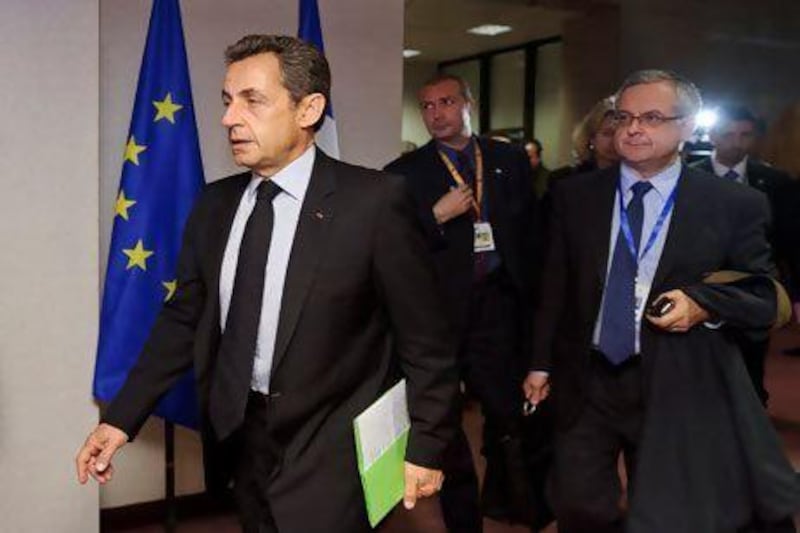Global stocks and oil prices shot up yesterday after European leaders announced new steps to stabilise the euro zone and fight the spread of its sovereign-debt crisis.
The Euro Stoxx 50, an index of Europe's largest listed companies, climbed by more than 5 per cent in afternoon trading yesterday. Germany's DAX stock index was up by 4.8 per cent on the day, and France's CAC 40 rose 5.2 per cent.
Oil prices also rose. Nymex crude futures, which trade in New York, rose 3.1 per cent to US$93 a barrel. The euro rose to above $1.40, a seven-week high.
The rallies followed an agreement in Brussels with bankers to write off half of what Greece owes them, increase the size of a recently established bailout fund and to recapitalise banks so they can weather any further stress.
"The world's attention was on these talks," said Angela Merkel, the German chancellor, according to a Bloomberg News report. "We Europeans showed tonight that we reached the right conclusions."
Leaders persuaded banks to accept a 50 per cent haircut on Greek debt, vastly easing the repayment burden that has brought the country to the brink of financial collapse.
Without concessions from banks and aid from the IMF, EU and European Central Bank (ECB), Greece would already have defaulted on its debts, which total more than 150 per cent of its GDP.
They also boosted the capacity of the European Financial Stability Facility (EFSF), leveraging up the €440 billion (Dh2.27 trillion) fund to give it €1tn to spend on rescues of debt-saddled countries. The EFSF is a critical backstop in the effort to prevent the crisis from spreading to major European economies such as Spain and Italy.
Europe's banks are to be recapitalised under the plan, and the ECB is to play a central role in monitoring the system as well as intervening in sovereign bond markets when they show signs of stress.
While markets cheered the long-awaited measures, economists say Europe has a litany of challenges in front of it before the continent gets a clean bill of health. Some said the plan was long on rhetoric but short on details.
Despite plans to recapitalise Europe's banks, signs still point to serious weakness in the euro-zone financial system as banks refrain from lending to each other, Ben May, an economist who covers Europe at Capital Economics in London, said in a note yesterday.
"The latest monetary data suggest stresses in the banking sector are growing," he said. "With the new bank recapitalisation plans unlikely to restore stability to the banking sector, we expect credit conditions to continue to tighten."
Yesterday, however, investors even beyond the euro zone appeared happy with the action they saw. The FTSE 100 index in the UK, part of the EU but not the euro zone, rose 2.6 per cent in afternoon trading.
The Dow Jones Industrial Average, a major US index, rose by almost 2 per cent in early trading yesterday.





